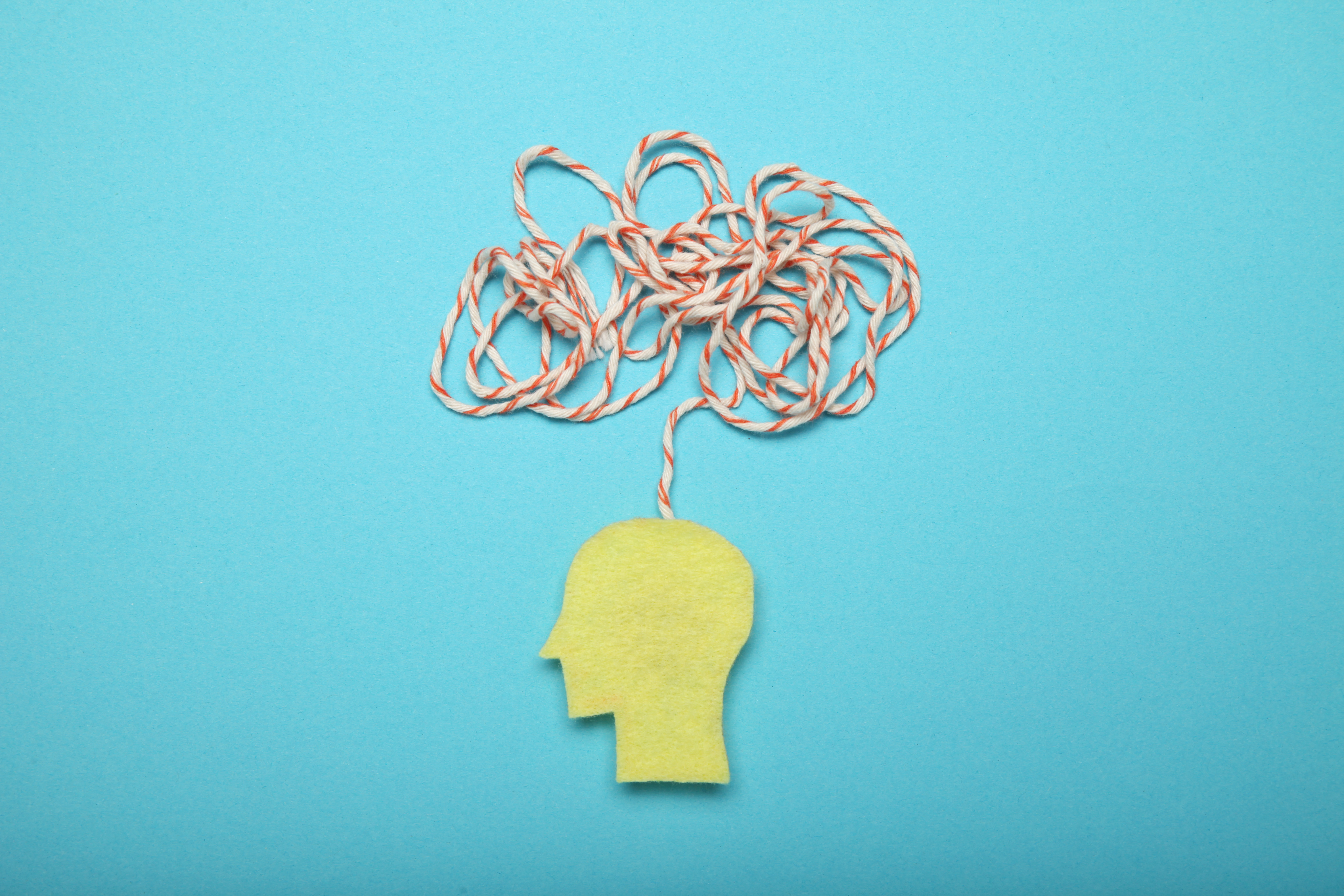Welcome to our special section, Thrive on Campus, devoted to covering the urgent issue of mental health among college and university students from all angles. If you are a college student, we invite you to apply to be an Editor-at-Large, or to simply contribute (please tag your pieces ThriveOnCampus). We welcome faculty, clinicians, and graduates to contribute as well. Read more here.
Panic attacks can come on fast, and when you least expect them: at work, in the car, in the middle of class. There’s often no rhyme or reason for why they appear: All you know is, you’re freaking out, and the more you think about it, the worse it gets.
I know firsthand how frightening they can be: I’ve struggled with PTSD and panic disorder for nine years, living in perpetual fear of panic attacks manifesting when it’s least convenient. Not that there’s a convenient time to panic, per se, but I’d rather hyperventilate on my couch home than during a lecture, a work meeting, or my wedding vows (which did, in fact, happen). Alas, we can’t pick and choose when mental illness acts up, so it’s wise to try to manage the symptoms until the attack subsides — which it always does — though that’s hard to recall when you’re actively panicking.
It’s important to note that panic disorder is not the same as feeling anxious every now and then, though both can share symptoms like disrupted sleep and increased heart rate. Panic disorder is a specific type of anxiety that causes panic attacks, defined by the National Institute of Mental Health as “sudden feelings of terror when there is no real danger,” often resulting in feeling a “loss of control.” According to the N.I.M.H., symptoms of an attack can include a faster-than-usual heartbeat, chest and/or stomach pain, difficulty breathing, dizziness, sweating, feeling hot or cold, and tingly or numb hands. My attacks’ symptoms consist of all of these, on top of persuasive thoughts that I’m dying of heart failure.
My own panic attacks are extremely intrusive, and, if I’m unprepared for them, can disrupt a whole day — though they don’t have to. Trust me: I made it through college and graduate school, and now am back in school for another graduate degree, and even I, a self-proclaimed anxiety queen, have managed to regulate my symptoms throughout periods of academic and professional stress. I’m proud to say that I’ve finally developed techniques on how to ground myself during an attack so I can get back to school with a clear mind. And if I can, anyone — including you — can, too. Here are some of my tips, as well as insight from experts.
Feel your heartbeat
If you know me, it’s obvious when I’m panicking, because I look like I’m doing the Pledge of Allegiance. I put my hand on my heart when I panic because it reminds me that while it may feel like I’ve lost control, my heart is still beating, my body is working as it’s meant to, and therefore I’m okay. The same goes for taking or feeling your pulse. “By taking your pulse, you’re grounding yourself in something rhythmic and concrete, which might provide distraction from your thoughts,” affirms Heather Z. Lyons, Ph.D., a licensed psychologist.
Ground yourself — literally
Sit down or hold onto something — a wall, a chair, or even a friend’s arm. With panic comes a feeling of being out of control, often triggering dizziness and the sensation of falling, according to Harvard research. Using an object (or friend) to help you balance provides assurance that even if you were to fall (which I always think I’m on the verge of, but never do), you’re holding onto something steady. Similarly, Elizabeth Cohen, Ph.D., a clinical psychologist, suggests grounding yourself by taking a moment to feel your feet on the ground. This can help remind you that you are safe, she says.
Ground yourself mentally
You can also try the “3 x 3” grounding exercise to manage panic symptoms, suggests Annie Varvaryan, Psy.D., a clinical psychologist. For this exercise, you identify three things that you see in your environment, like a lamp, a table, and a printer, three things that you feel, like the temperature in the room, your body sitting on a chair, or a cool breeze, and three things that you hear, like birds chirping outside, people talking in the hallway, and cars driving on the road nearby. This helps you ground yourself back to the present moment, and identify that you are not in your past or anticipated future, which could feel threatening, Varvaryan explains.
Fight anxiety with facts
It also helps to avoid searching for evidence, Varyvaryan points out. That means that if you’re panicking and having unhelpful thoughts about yourself, find evidence that does not support that. For example, when I do this myself, if I’m worried I’m going to faint, I remind myself: I felt like this last time, and I didn’t faint. Same with the time before that, and before that. Why would I faint now? Focusing on reality and factual information helps combat irrational thoughts and fears, Varyvaryan says.
Try the 5-4-3-2-1 exercise
Try the “5-4-3-2-1″ exercise, Kimberly Meehan, N.P., a psychiatric nurse practitioner, suggests. “Find five things that you can see, and name them in detail, then find four things that you can feel touching your body, three things that you can hear, two things you can smell, and one thing you can taste,” she says. This exercise takes your mind off of the panic, forcing you to focus on the present.
Do square breathing
In my experience, the only thing that helps less than hearing “calm down” during a panic attack is being told to “take a deep breath.” Meehan recommends trying the technique of “square breathing” instead. “Find a square in the room you are in — a window, a picture, a computer — and trace the four edges of the square with your eyes or fingers in the air. As you make your way around the square, breathe in on one side, while counting to four, and on the next edge, breathe out while counting to four. Repeat this as many times as you need to to help regulate your breathing, but also giving yourself something visual to look at,” she says. “This approach is great if you are in a public space or in a meeting, as it can be done without drawing attention.”
Relax your muscles
Directing your attention to your muscles can also help. Andrea Gurney, Ph.D., a psychologist and professor of psychology at Westmont College, recommends specific muscle relaxation techniques that can help. “Clench your hands in a tight fist, hold them that way for ten seconds, and then release them. Go through various body parts — shoulders, forehead — doing this,” she suggests. I use this tactic myself when I have an attack during my commute, and I find it particularly helpful because I can do it quietly without bringing attention to myself.
Express gratitude and positivity
It may sound cheesy, but forcing yourself to feel grateful is a great way to reduce panic, because it’s hard to be grateful and stressed simultaneously, Gurney points out. When you start to experience symptoms, name something you are grateful for, she suggests. If that alone isn’t enough, simply keep naming things until you start to feel better.
Positive self-talk with mantras can help, too. “Have a mantra ready to go that you can say out loud or in your head,” Gurney suggests. Some successful examples include: “I am okay,” “I am safe,” “I am loved,” and “This will pass.”
Find a support system
I was embarrassed when I first started panicking, because I thought I was the only one. But that couldn’t be further from the truth: Anxiety disorders are the most common mental illness in the United States, according to the Anxiety and Depression Association of America, and panic disorder and attacks affect six million adults in the U.S. Clearly, anxiety sufferers like me are not alone, and it’s nothing to be ashamed of.
I strongly suggest opening up to trusted friends and family members about it. Personally, I’ve found that to be incredibly helpful. Tell them about your symptoms, what seems to cause them, and what they can do to help, even if it’s simply sitting in silence while you sort your anxious thoughts. That way, if you’re unexpectedly hit with a wave of panic, you have someone to text or call for support. For me, sometimes just knowing I have someone who cares is enough to get me through those few minutes of dread.
And remember: Panic attacks are only temporary — and this one will pass, too. And until it does, simply remember the tips outlined above. You can, and will, get through it! You always do.
Subscribe here for all the latest news on how you can keep Thriving.
More on Mental Health on Campus:
What Campus Mental Health Centers Are Doing to Keep Up With Student Need
If You’re a Student Who’s Struggling With Mental Health, These 7 Tips Will Help
The Hidden Stress of RAs in the Student Mental Health Crisis


